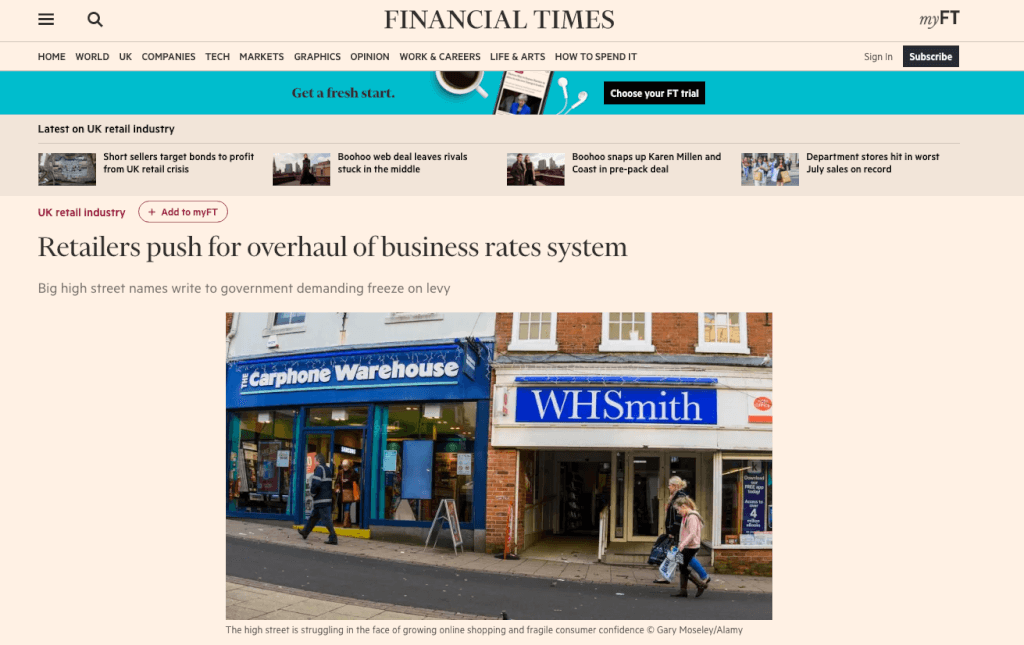AUGUST 13th 2019: ‘More than 50 British retailers, including Marks and Spencer Group PLC, J Sainsbury PLC, Asda and Harrods… urged the UK government to “fix the broken business rates system,” through a letter to Finance Minister Sajid Javid demanding that he freeze increases in business rates, a property-based tax.’
Why is the business rates system broken?
The major retailers’ letter stated that the system of business rates was outdated and harmed investment, to the detriment of jobs and communities.
It confronts a contradiction and imbalance in the Retail sector’s plight. Despite Retail being the largest private sector employer in the UK, employing around 3 million people (representing 5% of the British economy), it pays about 10% of all business taxes and about 25% of business rates. Retailers are understandably concerned about this perceived injustice. To compound this, bricks-and-mortar retailers have undergone an onslaught from online competitors for several years. One fifth of all sales takes place online. Yet digital retailers pay lower rates, due to occupying less physical space.
The heads of major retailers including Sainsbury’s Asda, Morrisons, Boots, Greggs and John Lewis warned of the British economy standing on the brink of recession, with a no-deal Brexit looking ever more likely. The strain on the Retail sector clearly requires greater government support. The current business rates system is simply too outdated to deal with this threat. As a result, it is a potential harm to investment, hitting jobs and communities. They urged prime Minister Boris Johnson to reform the system in order to safeguard the future of the High Street.
Is there hope on the horizon?
‘The Government recognises that changing consumer behaviour presents a significant challenge for retailers in our town centres and is taking action to help the high street evolve.’
The autumn Budget of 2017 announced that the switch in the indexation of business rates from RPI to the main measure of inflation (currently CPI) would come into place in April 2018. A year later, the Chancellor announced a 33% business rates ‘Retail Discount Scheme’ for occupied retail properties with a rateable value of less than £51,000 in 2019-20 and 2020-21.
But what support is available for larger rateable properties? Productivity improvement offers the most effective weapon against these rising costs.
The Government’s letters can be found here in full:
Read more on the threats to the future of the High Street
SWL are productivity improvement specialists. Call us today on 01527 895020 to arrange a discussion on how SWL can help you to operate more productively to help mitigate the effects of the business rates system.

